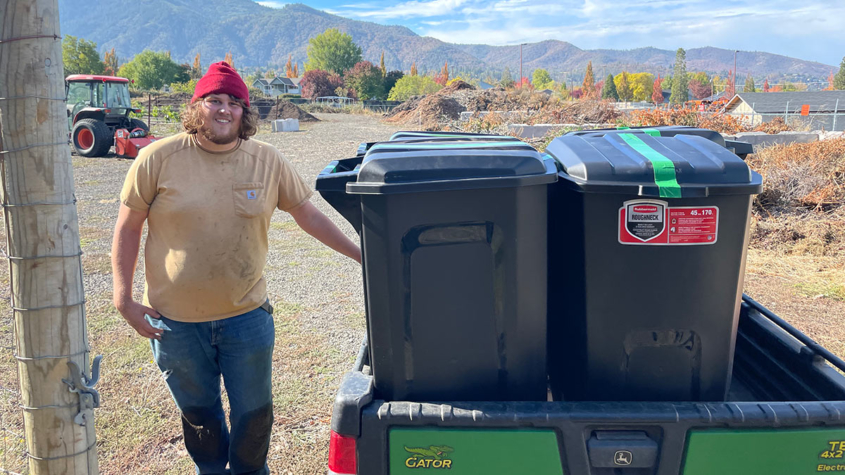FOOD AND DINING
SOU is committed to improving managing food sustainably through the whole food system as well as promoting sustainable dining practices.
SOU Dining
To find out more about sustainability at SOU Dining, please visit here.
Food Pantry
The SOU Student Food Pantry is committed to providing students with food and other basic necessities to alleviate the effects of hunger and poverty. For more information, please visit here.
The Farm at SOU
The Farm at Southern Oregon University is a center for sustainability. The student-led organic farm produces healthy, sustainably harvested food for the SOU community. The Farm provides food to SOU Dining as well as the Ashland School District. The Farm is a hub for education, student and faculty research and community outreach to the Rogue Valley. Projects on The Farm inspire a generation of ecologically-committed leaders who promote a vision of living and working sustainably in community and on the land. See more here.
Food Waste Composting
The Hawk dining commons addresses pre-consumer food waste by collecting and compost scraps generated in the preparation of student meals. The composted pre-consumer waste is used to enrich soil at The Farm at SOU – and grow more produce for the dining commons.
The program results in the composting of about 400 pounds of food preparation waste each week – materials such as egg shells and scraps from fruits, vegetables and bread. The two-step collection process begins with compostable waste being deposited in specially marked green bins adjacent to the Hawk’s kitchen prep tables; that waste is moved to larger, secondary containers when the smaller bins fill, and the larger containers are transported by truck on Mondays, Wednesdays and Fridays to The Farm, a few blocks to the northeast.

Food Waste Reduction Initiatives at SOU
- A 2019 grant from the Oregon Department of Environmental Quality enabled us to replace 10.5-inch diameter plates with smaller 9-inch diameter plates, reducing food waste by 20%.
- Trayless dining conserves water and energy, reduces detergent use, and cuts food waste by 25%-30% per person.
- Pre-portioned serving vessels at food stations reduce post-consumer food waste.
- Regular food donations to St Vincent’s and Food Angels.
- Used cooking oil is converted to biofuels by a local company.
- Compliance with Oregon’s law prohibiting single-use straws unless requested by the customer.
- Utilization of reusable to-go containers for take-out food.
- Purchase of touchless condiment dispensers to reduce single-use condiment packets.
SUSTAINABILITY
Sustainability at SOU
1250 Siskiyou Blvd
Ashland, OR 97520
sustainability@sou.edu
541.552.8139

